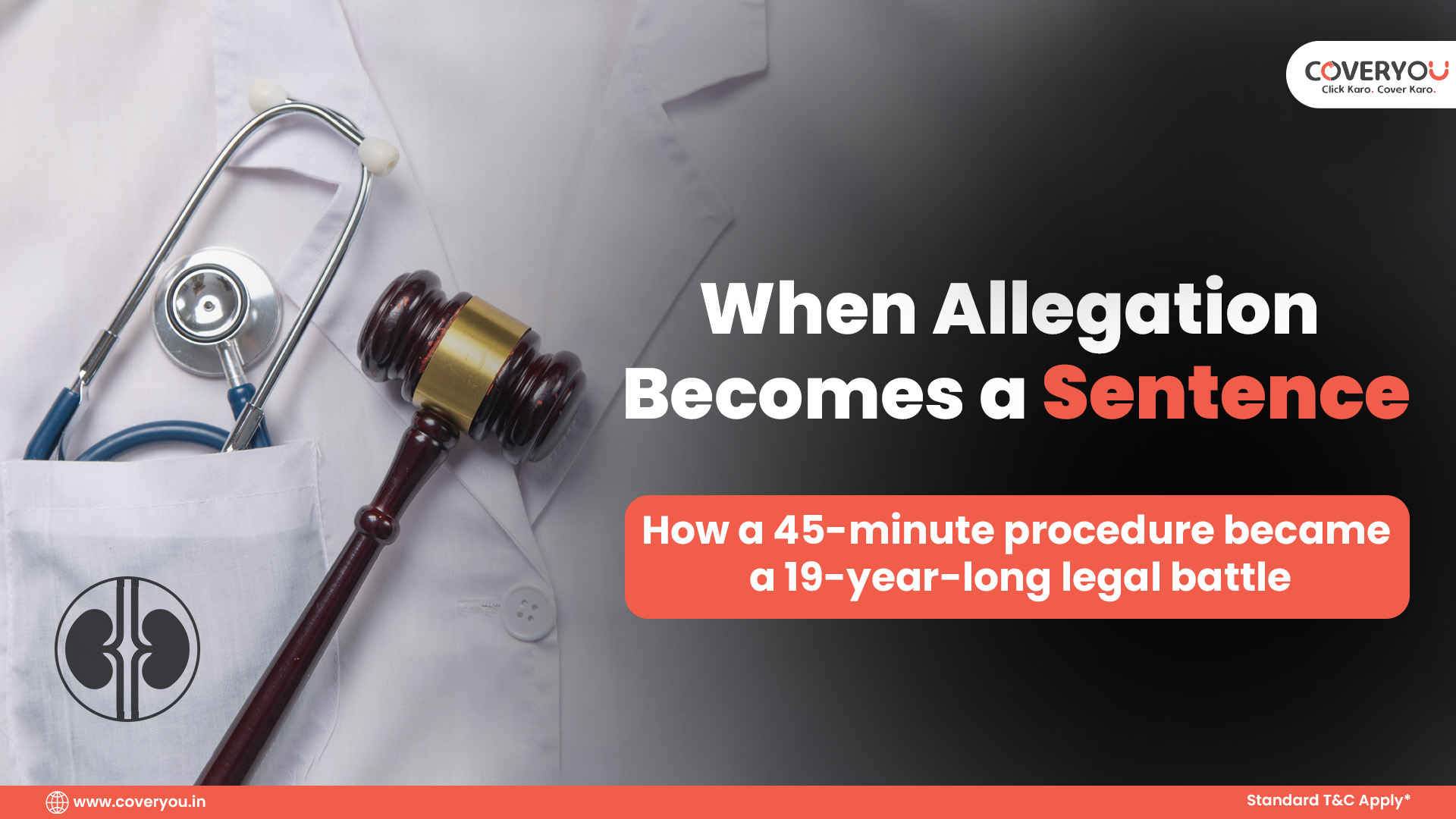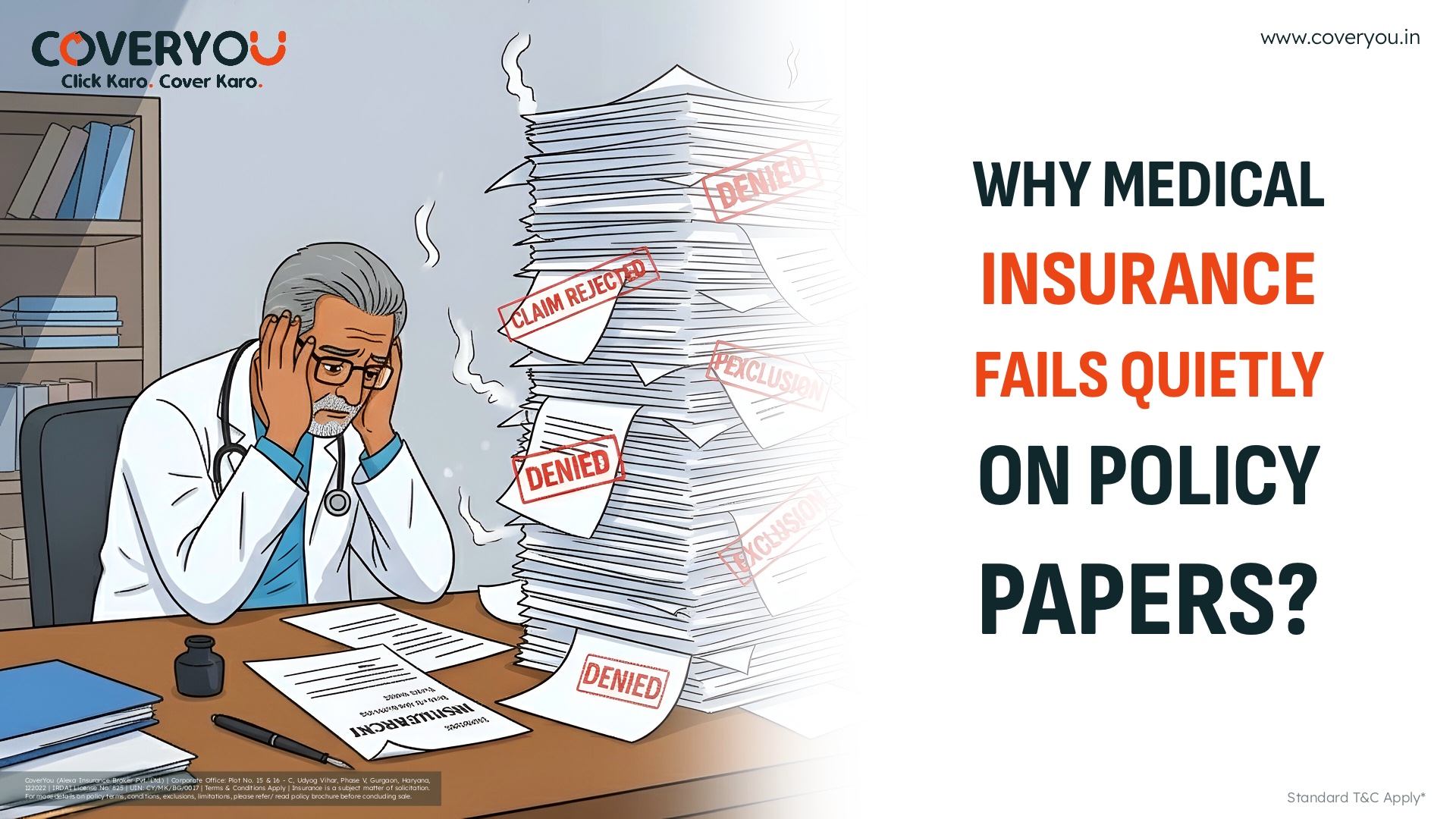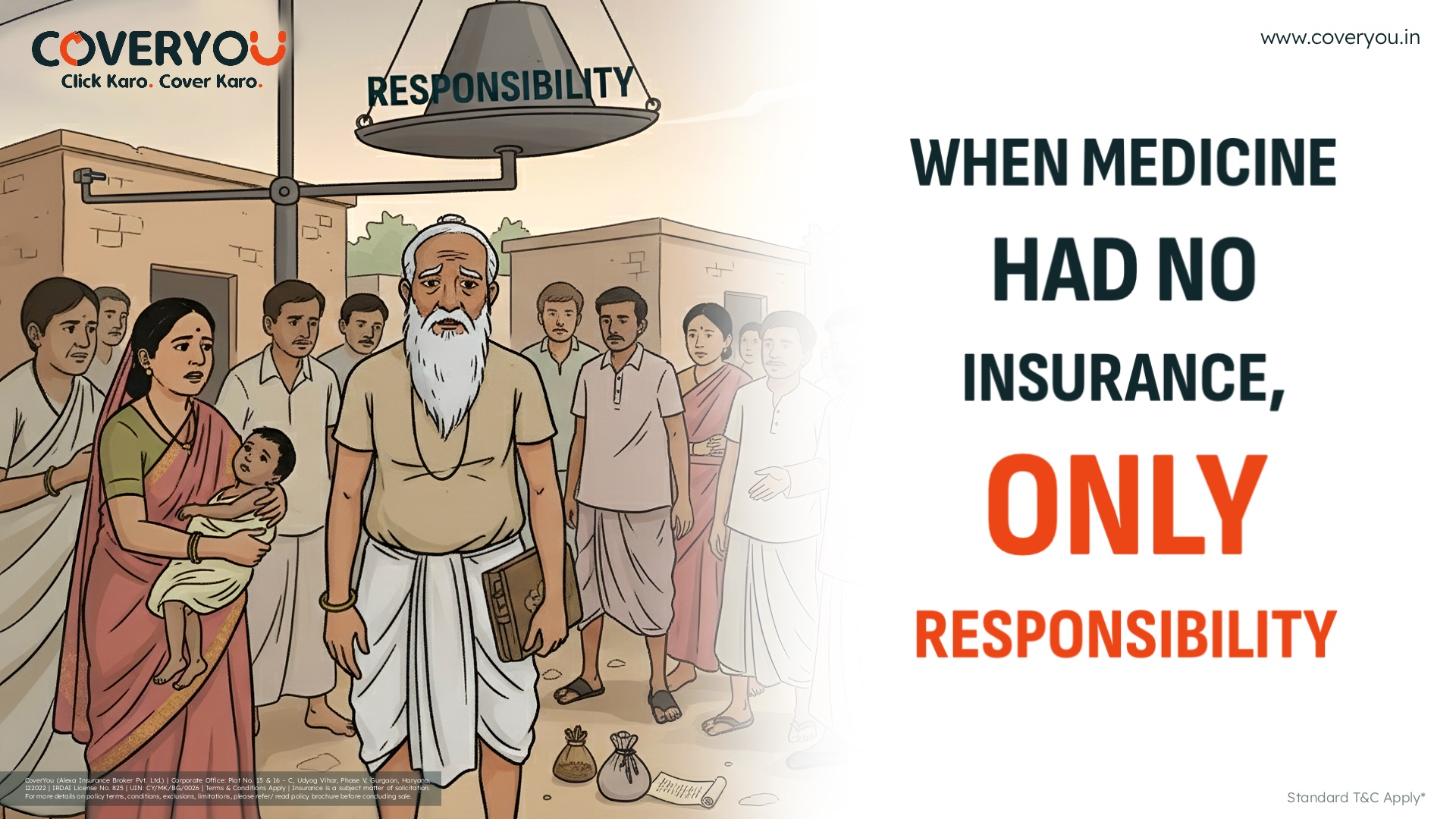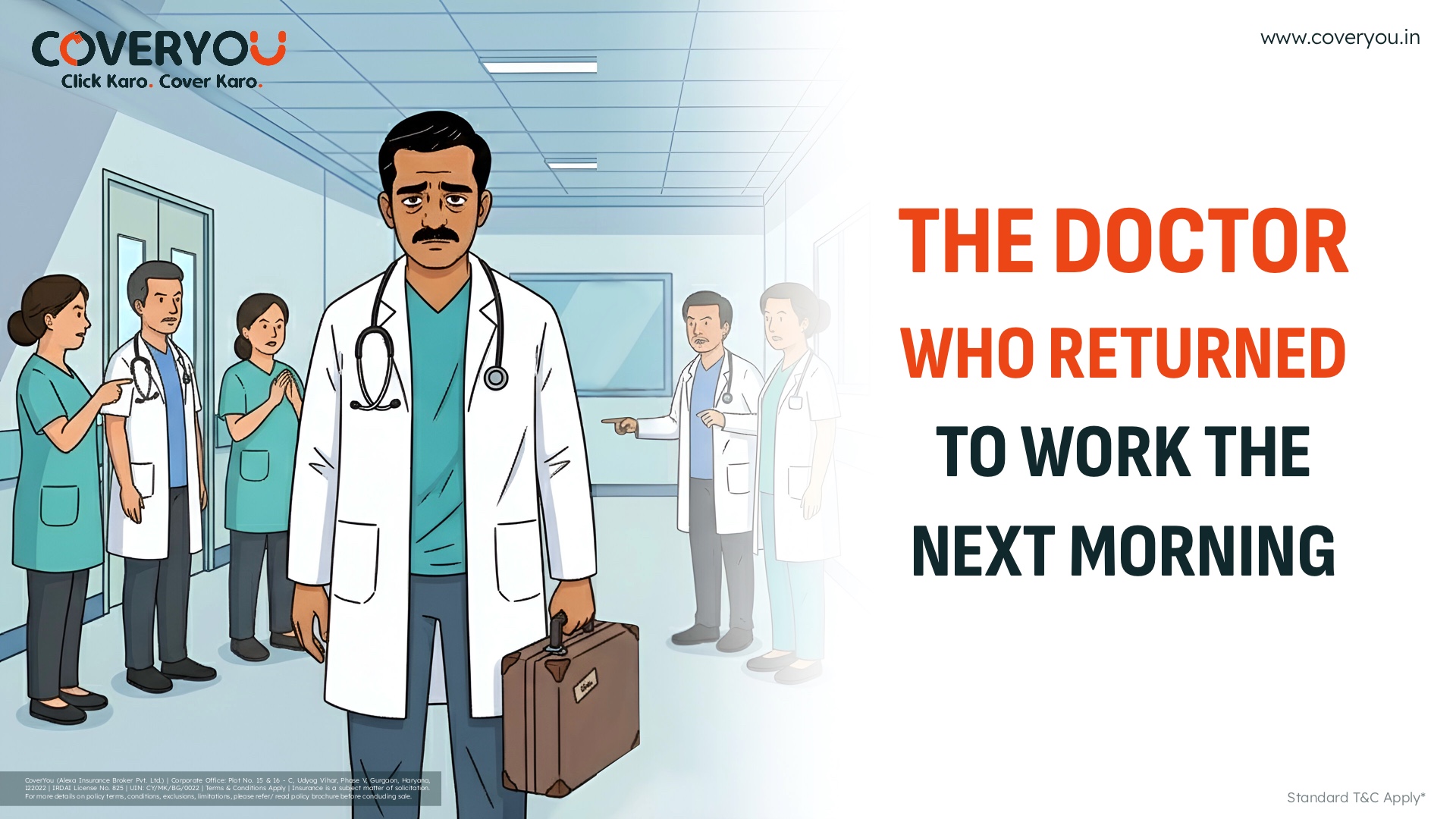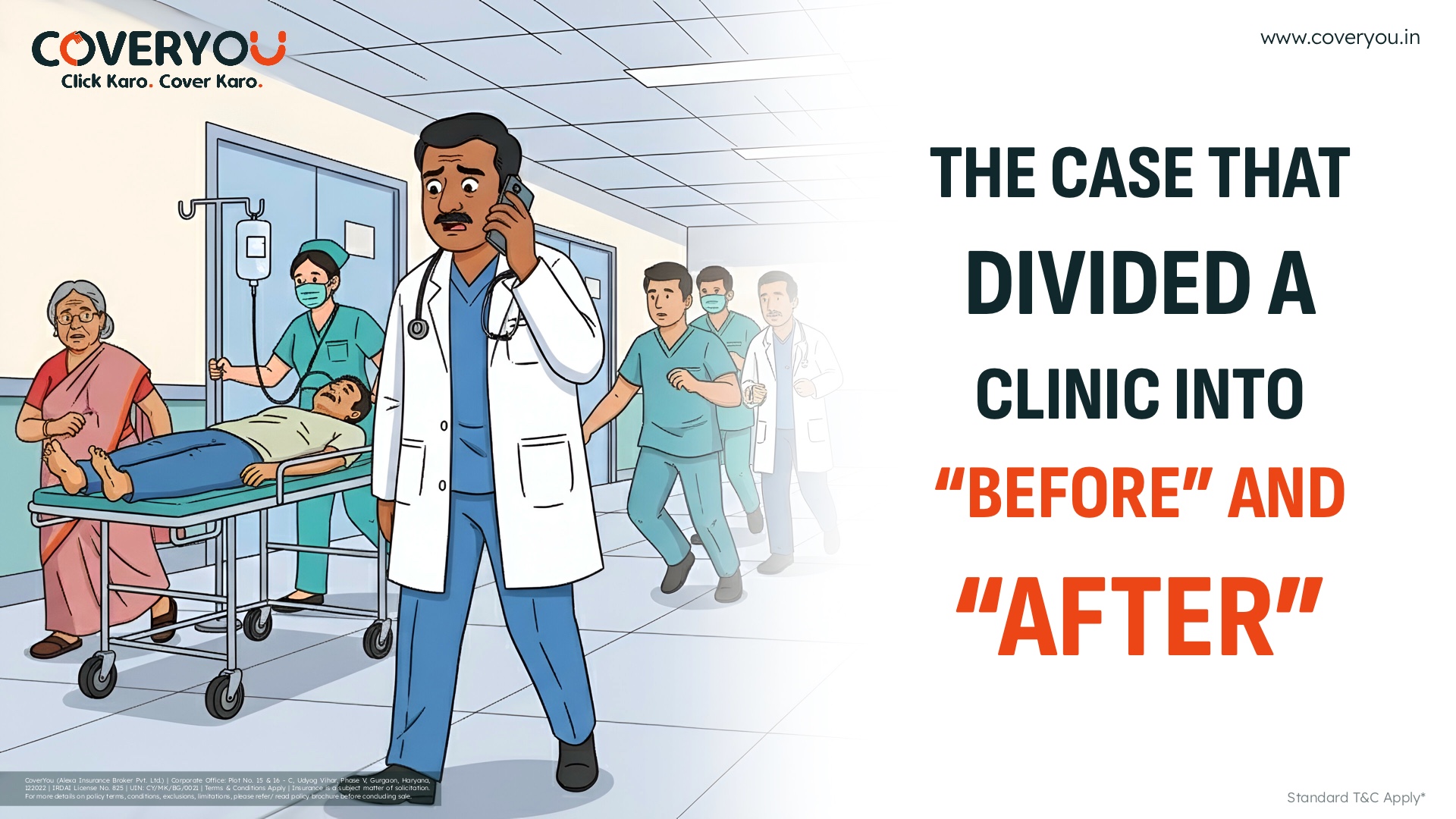Medical negligence is a phrase powerful enough to turn a life of service into a life under scrutiny. For doctors, it is not just a legal term; it is a shadow that can follow them across corridors, consultations, and conferences. In this case, it followed a urologist for nearly two decades. This is not the story of a medical error, but the story of what happens when medicine meets the courtroom and why, for every doctor, indemnity isn’t a luxury but a necessity.
In 2002, a woman had a routine kidney stone surgery, a PCNL. It was routine. Doctors discharged her in stable condition.. But within weeks, her condition deteriorated. Doctors admitted her to a Delhi hospital and placed her on life support.. She passed away the following day. Her relatives accused the doctor. They claimed he employed dirty instruments, which caused a bad infection. They lodged a medical negligence case. And to the surgeon’s surprise, what started as a 45-minute procedure became a 19-year-long legal battle.
A Career Put on Trial
The case crawled along, from district forums to the state commission and finally to the National Consumer Disputes Redressal Commission. The doctor wasn’t merely battling a courtroom case. He was battling gossip in hospital corridors, side glances from colleagues, and years of self-doubt.
The lawyers for the complaining patient had a simple argument: postoperative infection equaled negligence. No further evidence was required. That was how things worked in res ipsa loquitur, a principle wherein the accident itself would serve as evidence. The doctor continued his work while the case dogged him wherever he went.
The Final Judgement Came 19 Years Later
In 2021, the NCDRC finally closed the case. It was decided in the doctor’s favor. The verdict was unambiguous:
1: Proper procedures were followed in the surgery.
2: No conclusive evidence of a fungal infection.
3: Reports of the second hospital did not support the claim of infection.
4: Autopsy revealed a new reason for death: DIC.
5: The patient had been referred for advanced treatment in time.
In short, no grounds for negligence, wrongdoing, or a case. But by that time the damage was done. He defended his reputation, having spent nineteen years in courtrooms..
This Could Happen to Any Doctor
This case isn’t rare. Allegations can land at your door even when you’ve done everything right. That’s the reality now. Patients have high expectations. Outcomes aren’t always in your control, and lawsuits? They don’t wait for proof.
Why Indemnity Insurance Isn’t Optional Anymore
If you’re a doctor reading this, ask yourself, if you were sued tomorrow, are you prepared? Legal fees can mount up, and the stress can destroy you. Your reputation, your practice, your well-being – all of it can be pulled into the spotlight. That’s why professional indemnity insurance is important. Not for when you make a mistake, but for when someone accuses you of one.
What CoverYou Does Differently
At CoverYou, we don’t merely give you a policy. We have your back when things go bad. From initial notice to final judgment, we offer legal assistance, senior medical legal professionals, and trial advocacy that’s designed for doctors. Because we understand that in the modern world, a great doctor requires more than sheer ability. You require a buffer. That’s why CoverYou is backed by 100+ medical associations in PAN India.
Conclusion: Protect Yourself Before You Need To
This urologist won the case. But it took him 19 years. Don’t wait for that to befall you. Get protected. Not after the first allegation, but before it.
Reference:
https://medicaldialogues.in/news/health/medico-legal/patient-dies-post-percutaneous-nephrolithotomy-ncdrc-exonerates-urologist-hospital-of-medical-negligence-charges-79136
